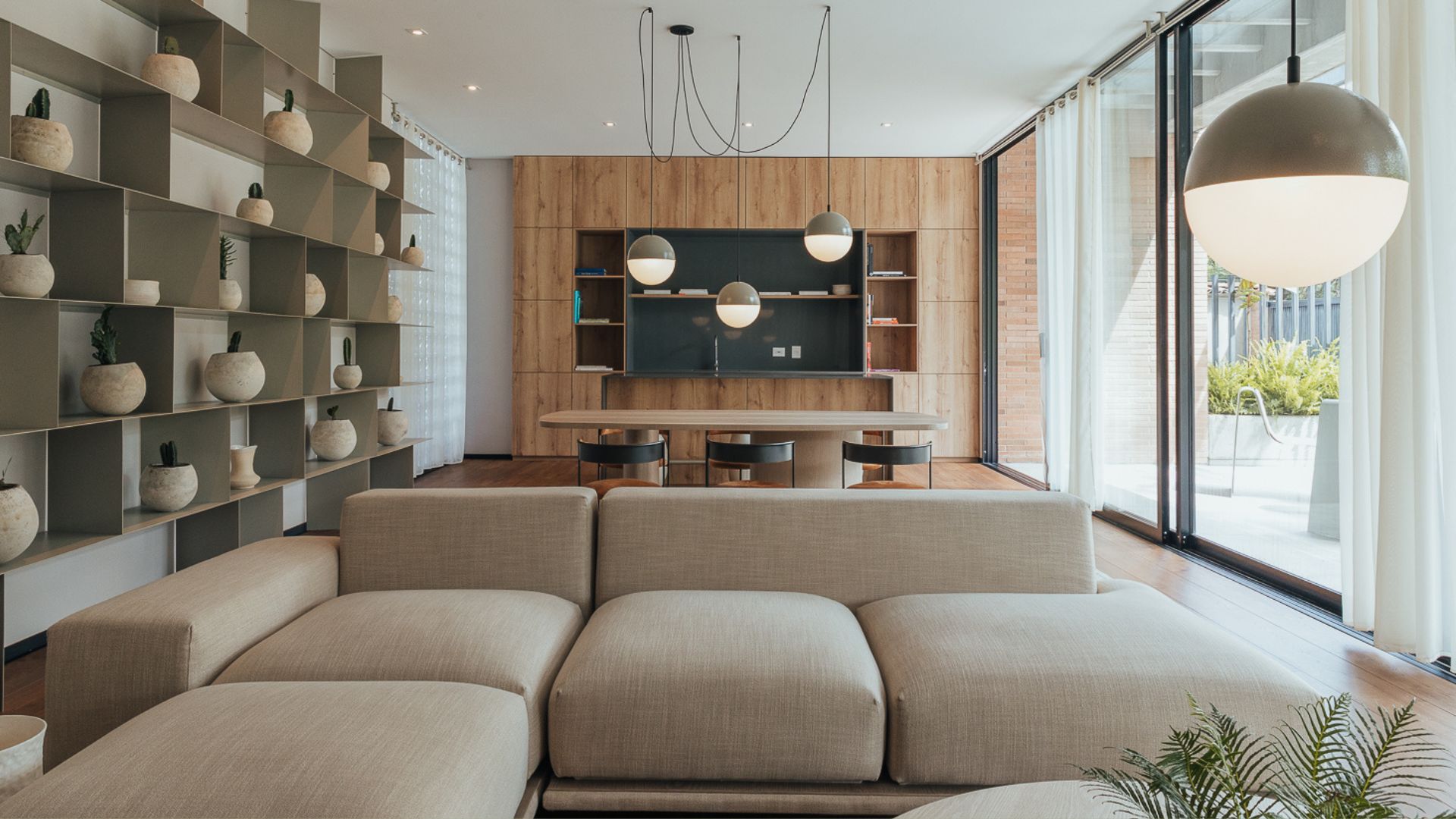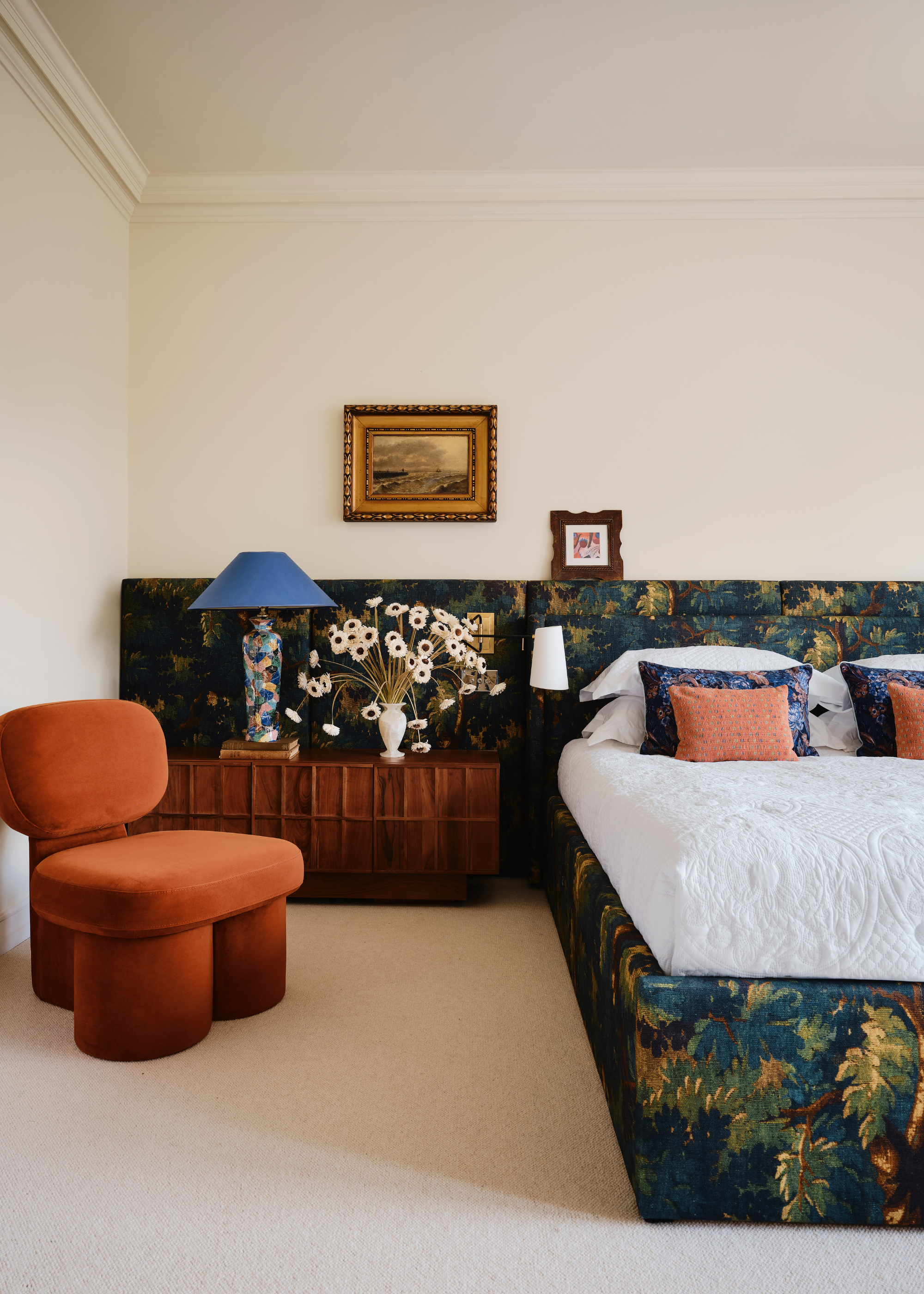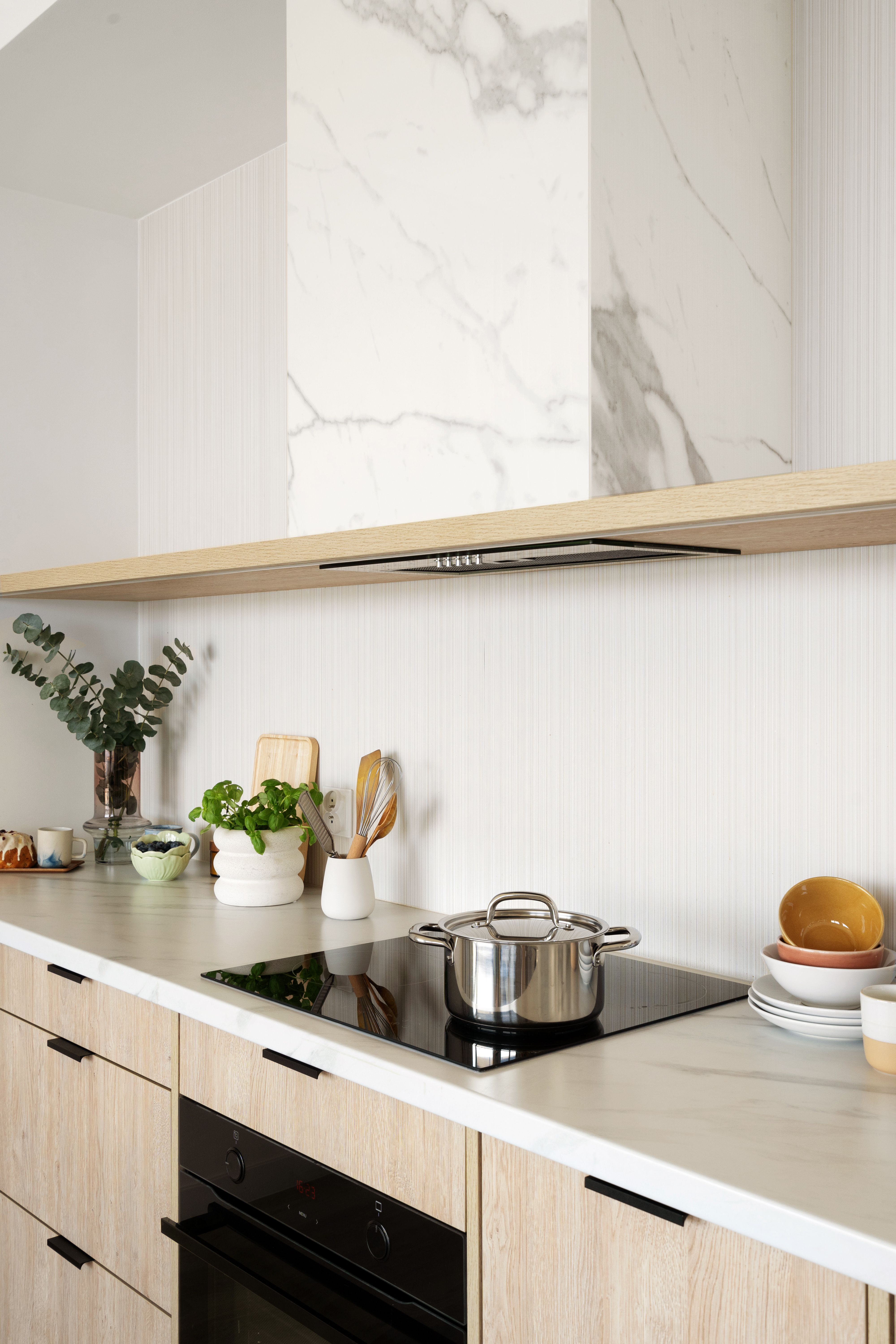
I firmly believe that a person's surroundings can impact their mental health. If a room is cluttered, a person is more likely to become stressed and feel mentally cluttered. So, naturally, I've tried many different decluttering methods over the years on my journey to living with less.
I moved into a new home not long ago, which isn't completely sorted at the moment. Given that there is a lot of clutter to get through, I thought it would be a great time to try out the week-by-week decluttering method and learn how to declutter my home. To get started, I chose one room to tackle each week, and the outcome was quite interesting.
It was a well-paced challenge that gave me time to reflect on the journey without interfering with my busy work schedule. Here's how the experience went for me and what some professional organizers think about the week-by-week decluttering process.
My Week-By-Week Decluttering Challenge
My goal for this challenge was to pare down my possessions, particularly removing those I don't need and those I've felt obligated to keep even though I don't use or need them.
At the time of starting the challenge, it was just before Christmas, so I plan to donate many of the items I (hopefully) declutter to good causes for the New Year. This should be a good motivator while undertaking this weekly challenge as well, so if you're thinking of undertaking it too, perhaps take a moment to consider what you plan to do with the items you're letting go.
Week One: The Living Room, Office and Bedroom

I live in a studio apartment split into three main areas, so my living area, workspace, and bedroom are combined. I love its coziness and the way it displays the things I enjoy seeing day to day. However, removing some clutter would be even better so that the small space felt extra breathable.
To begin decluttering my living and sleeping area (I had already decluttered and organized my home office space), I started by looking around the room for any obvious places to start. I came up with two: stuffed animals and my closet. I admit to having a lot of plush toys. Many of them I've received as gifts, many are sentimental, and others I've picked up along the way. As for my wardrobe, I felt like an end-of-year taking time to declutter my closet was a good idea to assess what I did and didn't wear in a whole four-season cycle.
Starting with my stuffed animals, I took each item I owned off of their shelves and my bed and made a big pile on the floor. This helped me realize how many I owned and reminded me of why I wanted to reduce my collection and donate some to a Christmas toy drive for the local community.
I knew why I had so many (gifts, the odd bit of retail therapy, and sentimental teddies), but as I picked up each one and asked myself why I did or didn't bother with them, it became clear how many I could easily let go of to be enjoyed by someone else. Asking myself questions such as: "Why do I think I don't bother with this teddy?", "Why don't I reach for this?" and "Could this be better loved by someone else?" This really helped me through the process, and before long, I had accumulated two bags of toys to give to a worthy cause.
I readdressed my pile of "maybe" the following day, which I recommend doing with any items you're on the fence about, with a clearer head after donating the items I was letting go of.
I did the exact same thing with my wardrobe, asking myself, "When was the last time I wore this?" "Why haven't I worn this?" and "When I wear this, do I feel good/confident?" I then created piles to keep, donate, and decide on the following day. I collected a small bag of clothing to give to a clothing bank, which, although it didn't seem like much, made my wardrobe that little bit more noticeably spacious.
Afterward, I decluttered my living room and bedroom, I organized my space to keep things neat and tidy moving forward.
Week Two: The Kitchen

I've always used minimal kitchen items, which made it easy for me to declutter my kitchen when I needed to and organize my whole kitchen in one day. I use the same two trays, one for baking and one for cooking dinner, three side plates, two dinner plates, three glasses — the list could go on. As someone who is more introverted, I don't ever host dinners or have many guests, so I tend to keep enough for myself and my partner and a spare.
This minimalism, however, doesn't extend to my cupboard of mugs. I have a weakness for seasonal hot chocolate mugs, which is fuelled by the fact that I also receive mugs as gifts.
I took down my mug collection and sat them all ten on my small kitchen counter. The first thing I did was take the ones I felt I could genuinely say I regularly use out of the pile and into a new pile of "keeps". Then, I assessed what was left and asked myself why I didn't use these as much. I concluded that some mugs were less comfortable to drink out of than others despite being lovely, and I didn't use others simply because I had so many mugs overall.
I placed the mugs I deemed uncomfortable to drink out of due to their shape, weight, or size into a pile to declutter (someone else will find them ideal!)., leaving only the ones I loved but rarely used.
I asked myself, "Now that I have fewer mugs overall, do I think I will use these ones?" as well as "Does having extra mugs make me happy?". Having extra mugs definitely makes me happy as someone who loves fall-winter and drinks many hot drinks and soups out of them to stay warm.
I culled my collection down to five: a Christmas-themed mug, an autumn-themed mug, a stunning set of two mugs I received as a gift, and a plain green mug I love the shape of and use as a pen pot on my desk. It felt rewarding to have more cupboard space and to organize my kitchen but I still had plenty of what I enjoy in the space, too.
Week Three: The Bathroom

I have a small en-suite bathroom consisting of a shower, toilet, sink, towel rail and a mirror with a built-in cabinet. In this room, I also store an open basket containing spare toiletries so my backup products are split from my open everyday-use products in the cabinet's space.
Since the space was already small, I was keen to see if there was anything I could pare down in my possessions while following expert tips and tricks for decluttering a bathroom and its cabinets. But the more I looked through what was in the space, the less I saw that it wasn't there intentionally.
Designating one singular medium-sized basket in my bathroom worked well to keep my purchases of toiletries limited and easy to access in one set space. I did find that taking items out of bulky packaging helped to make more space in my basket, and I found two items (a soap dispenser and a soap bar tray) to give away (these were part of a set, but I didn't use those pieces).
The power of achieving the balance of owning what you truly want and need was highlighted to me when sifting through the possessions in my bathroom. I had the staples as well as things like my apricot face scrub and face masks, which I love and relax using. It's also always good to have a reasonable amount of backup products that you know you will use.
FAQs
I asked four professional organizers to share their thoughts on the common FAQs of the week-by-week decluttering challenge.
Why should you try the week by week challenge?
Decluttering your space can decrease stress and anxiety and increase motivation, life satisfaction, and a willingness to let others into your home.
Ben Soreff, professional organizer and owner of House to Home Organizing says, "One feeling that our clients often mention when we are done decluttering and setting up organized systems in their space, is freedom. A true sense of being free. People have anxiety when they are not in control."
Di Ter Avest, professional organizer, owner of Di Is Organized, and author of the book Organize Yourself Healthy, has actually tried out the week-by-week decluttering challenge for herself and found the process to be a great fit for a busier lifestyle.
"The week-by-week decluttering method is something I’ve tried myself, and it’s a big part of what we do in the Organize Yourself Healthy (OYH) Club! It’s a fantastic approach because it breaks down the overwhelming task of decluttering your entire home into manageable chunks," says Di. "It feels very doable, keeps you motivated as you'll constantly see progress one room at a time (celebrate these wins!), and focusing on one area allows you to really think about what belongs in that space and how you want it to work for you."
If tackling whole rooms at a time is still too much, Amanda Wiss, Founder of NYC-based home staging company Urban Staging and home organizing company Urban Clarity, explains how you can break them down further to make the task of decluttering more approachable.
"You can split the room into quadrants and work day by day for the entire week, putting a few minutes of focus into getting rid of items your family no longer touches or uses, and reorganizing what you’re left with," says Amanda.
So give this method a go, and it might be just the thing you've needed to kick-start decluttering your life.
What should you not throw out when decluttering?
It can be difficult to know when you're ready to let go of something or what the "right" things to let go of are (I've struggled with this, too). But the reality is that there isn't a "right" thing to remove from your life because there is no set rule for decluttering — it looks different for everyone.
"When it comes to decluttering, one thing I always tell people is that it’s hard to say exactly what someone shouldn’t throw out because everyone has different needs, priorities, and lifestyles," says Di. "Decluttering and organizing is not a one-size-fits-all approach, and what works for one person might not work for another. The key is to focus on keeping a manageable amount of items that truly have meaning to you and align with your life."
Dana Reder, a professional organizer and founder of Winnow & Bloom, suggests implementing decluttering as a consistent habit in your home and life instead of worrying about having everything sorted in one go. This will make decluttering more frequent, natural, and easier over time.
"All but the most minimalist of homes would benefit from a weekly decluttering routine," says Dana. "If things are generally tidy you could tackle one room per week but if this is your first foray into decluttering or you tend more towards maximalism and accumulation, I would recommend picking a section of a room - a corner, a countertop, a drawer, a category of clothing, etc. This way it won't feel so overwhelming to tackle all at once. Set a timer (15-30 mins to start) and get to work. It's amazing how accomplished you'll feel!"
Our Top 3 Decluttering Reads
Price: $9.99
Type: Paperback
As written on Amazon: "You don't have to live overwhelmed by stuff—you can get rid of clutter for good! Decluttering expert Dana White identifies the emotional challenges that make it difficult to declutter and provides workable solutions to break through and make progress."







